The main objective of this course is to give an opportunity to those who want to learn Portuguese to do it online. In this course, students will be able to understand and use familiar, everyday expressions and very basic sentences aimed at the satisfaction of needs of a specific type. They will learn to introduce him/herself and others and ask and answer questions about personal details such as where he/she lives, people he/she knows and things he/she has got. They will learn to interact in a simple way provided the other person talks slowly and clearly and is prepared to help. No prior knowledge is required to enroll in the course.
Portuguese for Foreigners, level A1 (308_16_2S)
Tutoring: Ana Catarina Matos – Ana Santos – Cláudia Martins – Joana Câmara – Lúcia Mascarenhas
The Camões, Instituto da Cooperação e da Língua (Camões, I.P.) is launching an online course entitled Portuguese for Foreigners, level A1. The course will be totally delivered online, using a course management system as well as other useful software (see requirements below).
I - Objectives
(Back to top)II - Participants
(Back to top)The course is aimed at those who want to further their knowledge of the Portuguese language.
III - Organization and methodology
(Back to top)The course is divided into 14 weekly modules; learners will spend 8 hours a week on the course, as follows:
- Autonomous work: Reading and listening materials for the modules that make up the course; execution of various tasks and exercises, including grammar;
- Working with the tutor: 30 minutes per week of oral interaction with the respective tutor; interaction through the platform forum about doubts, difficulties and other topics of interest to the participants.
IV - Assessment
(Back to top)Assessment of the course is based on a continuous assessment of various items:
- Regular access to the platform;
- Questions submitted by email / forum / comments;
- Fulfillment of the platform tasks:
- performing exercises of reading comprehension, listening comprehension and grammar activities;
- writing an essay about the topic of each unit;
- Skype interaction - ask and answer about a subject related to the theme of unity.
- To pass the course, students must participate in 2/3 of the oral interactions.
Participants who successfully attend this course will be awarded a certificate.
V - Number of participants
(Back to top)20.
VI - Schedule
(Back to top)- Applications: January 16th to February 8th
- Selection: February 9th and 10th
- Payments: February 13th to 17th
- Substitutions: February 20th and 21th
- Beginning of the course: February 23th
VII - Fee
(Back to top)There will be a 320 EUR fee. Payment will be made by bank transfer. We will send our bank account details to the selected participants.
VIII - Requirements
(Back to top)Candidates must have:
- broadband Internet;
- a multimedia computer (must be able to access/open Microsoft© Office files and/or .pdf files, as well as audio and video files in external web pages/applications (online journals, youtube, etc.);
- headphones and a microphone or a headset;
- Skype installed on their computers (free download at www.skype.com);
- Português XXI, level 1, Student Book (textbook);
- the respective exercise book and audio CD;
- optionally, Gramática Activa 1, a grammar book.
Participants will have a 20% discount when buying the above learning materials (textbook, exercise book, audio CD and grammar book) directly from the publisher. For further information please contact the publisher at depinternacional@lidel.pt. The Camões, I.P. itself will not establish these contacts.
IX - Certification
(Back to top)Participants in this course who want to certify their proficiency in Portuguese language may apply to the examination of the Center for Portuguese Foreign Language Assessment (CAPLE) to obtain the Initial Certificate of Portuguese as a Foreign Language (CIPLE).
For further information please visit http://caple.letras.ulisboa.pt.
X - Teaching staff
(Back to top)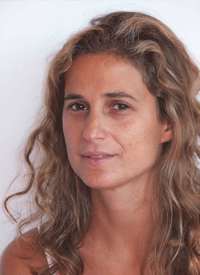
ANA CATARINA COIMBRA DE MATOS: Licenciada em Línguas e Literaturas Modernas – Variante de Estudos Portugueses e Ingleses, com Ramo de Formação Educacional, na Faculdade de Letras da Universidade de Lisboa. Doutora em literatura portuguesa na Universidade Autónoma de Madrid. Professora de Português – Língua Estrangeira em Madrid há 11 anos. A lecionar atualmente na Universidade Autónoma de Madrid/Centro de Língua Portuguesa Camões, IP.
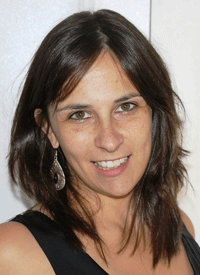
ANA SOFIA ANDRADE SANTOS: Licenciada em Línguas e Literaturas Modernas – Variante de Estudos Portugueses e Alemães, com Ramo de Formação Educacional, pela Faculdade de Ciências Sociais e Humanas da Universidade Nova de Lisboa. Mestre em Ciências da Educação – Análise e Intervenção em Educação pela mesma instituição e antiga investigadora do projeto ESCXEL - Rede de Escolas de Excelência. Professora de Português/Língua Portuguesa e Português Língua não Materna há 8 anos em escolas portuguesas. Coautora e colaboradora na produção de materiais didáticos e manuais escolares. A lecionar atualmente cursos a distância de Português para Estrangeiros no Camões, Instituto da Cooperação e da Língua, IP.
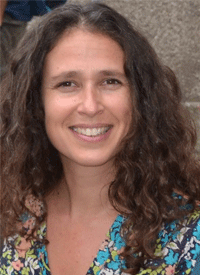
CLÁUDIA MARTINS: Licenciada em Línguas e Literaturas Modernas, variante de Estudos Portugueses (FCHS/UALG), e Mestre em Ciências da Linguagem (FCSH/UNL). Professora de Português Língua Estrangeira/Segunda desde 2006. Atualmente, colabora como docente em diversas instituições - Camões, I.P., FCSH/UNL, TheLisbonMBA (Católica/Nova), Berlitz Lisboa - e como tutora da Pós-Graduação em Ensino do Português Língua Não Materna (formação de professores, em regime de e-learning) da FCSH/UNL. Desenvolve investigação em Linguística no Centro de Linguística da Universidade Nova de Lisboa desde 2013.
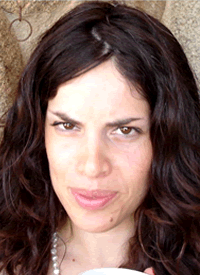
JOANA CÂMARA: Licenciada em Línguas e Literaturas Modernas - Variante de Português, Francês pela Faculdade de Letras da Universidade de Lisboa e mestre em Estudos de Teatro pela mesma Instituição. Colabora para o Instituto Camões desde 2007: foi leitora na Faculdade de Filologia de Belgrado (Sérvia), onde também desenvolveu projetos culturais e é atualmente tutora de cursos à distância. Leciona igualmente Português a Estrangeiros na Faculdade de Letras de Lisboa.
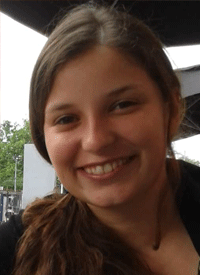
LÚCIA MASCARENHAS: Licenciada em Línguas e Literaturas Modernas – Variante de Estudos Portugueses e Alemães e Mestre em Ensino do Português como Língua Segunda e Estrangeira, pela Faculdade de Ciências Sociais e Humanas da Universidade Nova de Lisboa. Professora de Português Língua Estrangeira e colaboradora do Camões, Instituto da Cooperação e da Língua, IP, desde 2005. Autora e co-autora de manuais escolares e materiais didáticos na mesma área. Tutora dos cursos a distância de Português para Estrangeiros no Camões, Instituto da Cooperação e da Língua, IP, desde 2007.